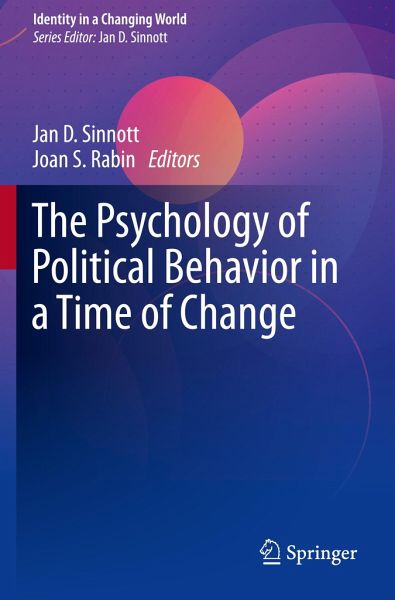
The Psychology of Political Behavior in a Time of Change
Versandkostenfrei!
Versandfertig in 6-10 Tagen
83,99 €
inkl. MwSt.

PAYBACK Punkte
42 °P sammeln!
This volume seeks to add a unique perspective on the complex relationship between psychology and politics, focusing on three analytical points of view: 1) psychology, politics, and complex thought, 2) bio/psycho/social factors of masculinity and power, and 3) underlying factors in political behavior. Contributors examine recent political events worldwide through a psychological lens, using interdisciplinary approaches to seek a deeper understanding of contemporary political ideas, psychologies, and behaviors. Finally, the book offers suggestions for surviving and thriving during rapid politica...
This volume seeks to add a unique perspective on the complex relationship between psychology and politics, focusing on three analytical points of view: 1) psychology, politics, and complex thought, 2) bio/psycho/social factors of masculinity and power, and 3) underlying factors in political behavior. Contributors examine recent political events worldwide through a psychological lens, using interdisciplinary approaches to seek a deeper understanding of contemporary political ideas, psychologies, and behaviors. Finally, the book offers suggestions for surviving and thriving during rapid political change.
Among the topics discussed:
Biopsychological factors of political beliefs and behaviorsUnderstanding political polarization through a cognitive lensImpact of psychological processes on voter decision makingMotivations for believing in conspiracy theoriesNonverbal cues in leadershipAuthoritarian responses to social changeThe Psychology of Political Behavior in a Time of Change is a timely and insightful volume for students and researchers in psychology, political science, gender studies, business and marketing, and sociology, as well as those working in applied settings: practitioners, government workers, NGOs, corporate organizations.
Among the topics discussed:
Biopsychological factors of political beliefs and behaviorsUnderstanding political polarization through a cognitive lensImpact of psychological processes on voter decision makingMotivations for believing in conspiracy theoriesNonverbal cues in leadershipAuthoritarian responses to social changeThe Psychology of Political Behavior in a Time of Change is a timely and insightful volume for students and researchers in psychology, political science, gender studies, business and marketing, and sociology, as well as those working in applied settings: practitioners, government workers, NGOs, corporate organizations.














